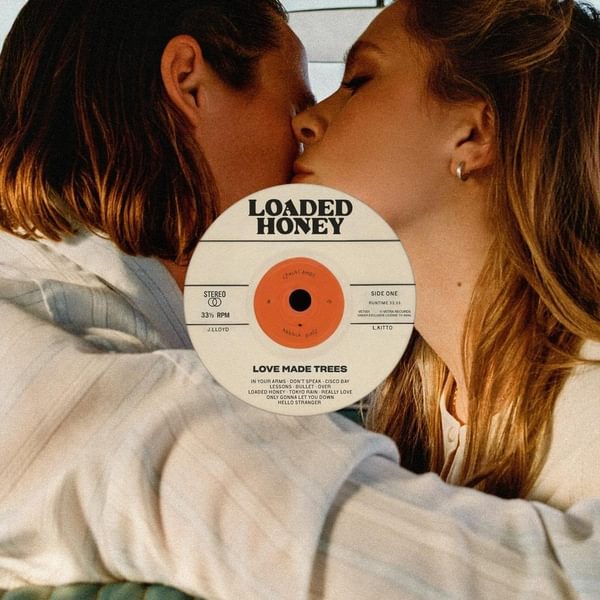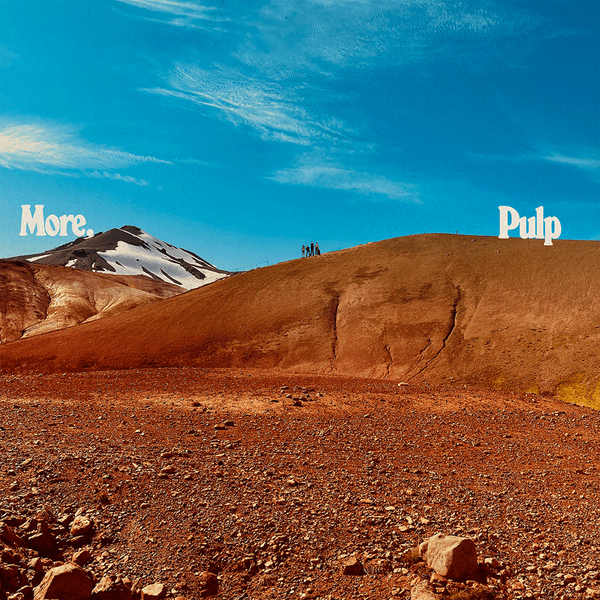
Beyond the Music's mission to connect and capitalise shines bright in Manchester
In its second year, Manchester’s Beyond the Music continues to take shape as one of the UK’s most impressive industry events.
Founded by Sarah Pearson, Rose Marley and Oli Wilson - son of the late, great Tony – it picks up where his father’s In The City left off. For two decades, Wilson Sr’s groundbreaking festival became known for putting bands in front of the London-centric industry figures and sealed Manchester’s reputation as England's second capital for music. Beyond the Music posits a more sustainable aim: what if such an event could capitalise on the differences between Manchester and London? Promoting local scenes and bringing local artists together with the people in their city who can help them grow is central to Beyond the Music, which includes strands for both industry and musicians, alongside three nights of new music spread across the vibrant Northern Quarter.
As part of an ongoing cultural renaissance in Manchester, the event is shot through with positivity and a very real sense of change – one that’s happening with both pace and reward. Everyone here talks about how much the city leads the UK in enabling creative enterprise in music, a move that has added £1.3 billion in GVA to the economy, while adding £469 million GVA and 19,000 jobs locally too.

An chat with local boy Aitch kicks off the first day, in conversation with from former BBC Radio 1Xtra host Dotty, where the New Moston-born rapper speaks of his teenage days as “the class clown who never got caught” to later channeling the spirit and attitude of the Gallaghers in his career. "What is it about Manchester that gives birth to artists with that famous swagger?” asked Dotty? "If I knew, I'd bottle it and sell it,” Aitch laughed. “Everything is laid back but we're still on the job…it’s a get-shit-done mentality but we're still having a laugh."
The conversation touched on the differences between Manchester and London, and asserted the Northern city’s place as a strong and vibrant scene for music. Aitch talked about the strength of having his management company NQ - which also works as a label and publisher – located locally. “It gives a base to people in Manchester to make music and have a sense of a scene here, instead of running off to London,” he explained. “I wouldn’t be here now if it wasn't for them. It's important to have people in your corner."
The key to changing the imbalance was a theme touched on throughout many other conversations taking place in the cavernous Aviva studios, Beyond the Music’s home this year.

The event’s importance was underlined by support at both civic and national level; beloved Mayor Andy Burnham and city council leader Bev Craig drop in to offer some words of encouragement at the start of the event, and Culture Secretary Lisa Nandy is also here to give The Tony Wilson Keynote – also her first ever address to the music industry since taking office.
While Nandy’s speech - full of bonhomie and the odd f-bomb - is light on policy, she does double down on the new Government’s commitment to reforming the Community Right to Buy scheme, helping music venues under threat of closure. “As live music venues have closed, too many parts of the country have become cultural deserts,” Nandy said. “And pop is getting posher. We are determined to reverse that trend by creating an ecosystem that can nurture talent from a quality music education, to the grassroots venues where people like The Verve from Wigan were able to hone their skills.”
The scheme gives communities the right to buy land or buildings if they identify a need for ownership and Nandy aims to increase the time limit in which an application - and the money - can be pulled together from its current window of six months.

Nandy also talked of the challenges that AI presents to the industry, echoing a manifesto commitment to regulation on companies developing the most powerful AI models. “It'll be highly targeted, it'll demand thoughtful engagement and consultation with the creative industries, but it will also require something else – for us to work across national borders.”
The conversation on AI continued in a panel on AI copyright law, where IFPI Director of Global Legal Policy Abbas Lightwall honed in on the need for tech companies to develop a deeper sense of who songwriters and artists are and why they do what they do. "Tech companies bringing in music people who understand the emotional side of music.... and understanding creators is key”, noted Lightwall. The panel were united in a call for the government to appoint an AI music czar or committee to help regulate the future of AI and its place in music.

Underpinning all the talk on AI, ex-Gomez member Tom Gray - now an industry campaigner and elected Chair of the Ivors Academy – gave a potted "shared messy history" of the music business, tracing how unfair decisions made in the early days of recording have created a legacy that’s still being unpicked. Music has always been out of sync with social justice, explained Gray, and also with harmonising creator rights in the UK. This helped lay the path to making billions for corporates, “while creators pick up breadcrumbs.” Hammering the point home, Gray used the sad story of blues empress Bessie Smith – whose grave lay unmarked for 33 years until Janis Joplin paid for her to have a tombstone.
Listing a litany of payola and streaming frauds – and a history of artists living out their final years penniless –,Gray asked if the government could improve things because, “competition regulations means that artists are singled out as independent contractors who are unable to collectively bargain,' he noted.

What will the music industry look like 20 years into the future? That was the focus of a final-day discussion at Beyond the Music where the focus was on democratisation rather than danger. With technology moving at an incredible pace, artists and songwriters need to harness the power of all that innovation while preserving human-made creativity. Nick Fellingham from Condense Live - a software engineer working with immersive technology - talked about capturing experiences of live events into digital spaces: "I'm a massive fan of live events but it ignores an enormous amount of people who can’t go to a given event because of geography or a disability. Young people after Covid are suffering from anxiety more than ever too."
A&R Isatta Cesay drew distinctions between technology’s history opening up access in terms of economic barriers to groups of people who were previously shut out of making music, and how some aspects of AI - such as the software tool Splice - continue to lower the barriers of entry. "AI right now in terms of music creation means I can hum a melody and it can create the song with an instrument for me that I can’t play," she explained.
Representing the voice of creators and performers, Tom Vek talked about an enduring connection with audiences through his music being more valuable than thousands of likes on social media - despite growing up disliking that kind of connection "Putting out an album in 2005 felt like the last year of that format being king," he recalled.

When the talks end each day at Beyond the Music, it’s over to the artists. While this year’s showcase – spread across ten venues – varies in quality and sound, there are some gems among the 200 or so sets. Curators such as The South Asian Music Summit, Awesome Friends, and indie label Nice Swan (English Teacher, Human Interest) turn in some of the best showcases, with Manchester outfit West Side Cowboy a standout with a frighteningly tight performance at Band on the Wall.
Elsewhere Hull’s prodigal son Chiedu Oraka elevates a line-up curated by Birkenhead’s Future Yard. The Yorkshire grime artist isn’t fazed by the thin crowd and performs with his usual conviction and humour – but over at AATMA, talented cellist Lili Holland-Fricke struggles to be heard against a band playing in the venue below.
These are minor flaws at an event where there's a lot to like and one that feels formidable against the UK capital's domination of the music industry since year dot. On such fertile ground, Beyond the Music will surely thrive and expand in years to come.
Find out more at beyondthemusic.co.uk
Get the Best Fit take on the week in music direct to your inbox every Friday

Little Simz
Lotus

Turnstile
Never Enough

Addison Rae
Addison





